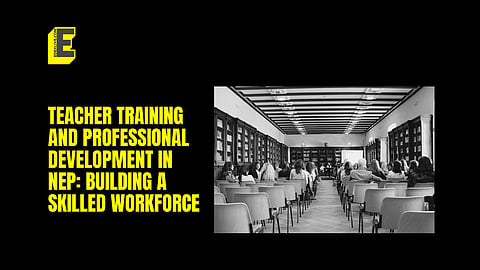Teacher training and professional development in NEP: Building a skilled workforce
How does the NEP reshape teacher training in India?
The NEP (National Education Policy) has sparked a national mission to improve the learning outcomes at the elementary level through an integrated teacher training programme called NISHTHA, which focuses on improving the quality of school education through skill-based subjects and vocational training.
The need of the hour is to equip teachers to think out-of-the-box so as to encourage and foster critical thinking in students.
A major shift is needed in the in-service teacher training as well as the entire realm of teacher education which will result in the restructuring of the Teacher’s Education course. This will encourage young adults who wish to pursue teaching as a profession to consider it as a serious career option.
How India’s approach to teacher training under NEP compare with global practices?
Globally, there is a commitment to improve the quality of education through a robust teacher training system which is customised to the needs and contexts of different countries.
The NEP represents a significant shift in adopting best practices that exist across the world, while ensuring that the unique needs of the Indian education system are also kept intact.
The NEP aligns to the global trend of providing holistic and research-based teacher education. The introduction of context-specific innovations, such as multi-lingual teaching is another important aspect.
The NEP emphasises on a four-year integrated BEd involving continuous professional development, technology integration, and mentorship, which are aligned to the global trend.
Why is ongoing professional development crucial for teachers?
Professional development must be an ongoing process for all teachers. In fact, the Central Board of Secondary Education (CBSE) has made in-service teacher training a mandate for a minimum of 50 hours. These trainings need to be aligned to the Board’s changing new policies so that there is scope for improvement at every step.
With the shift from rote learning to developing future-ready individuals, the need of the hour is to include competency based learning in the training programs for teachers. It is only when teachers are empowered with such skills, can they impart these to the children.



